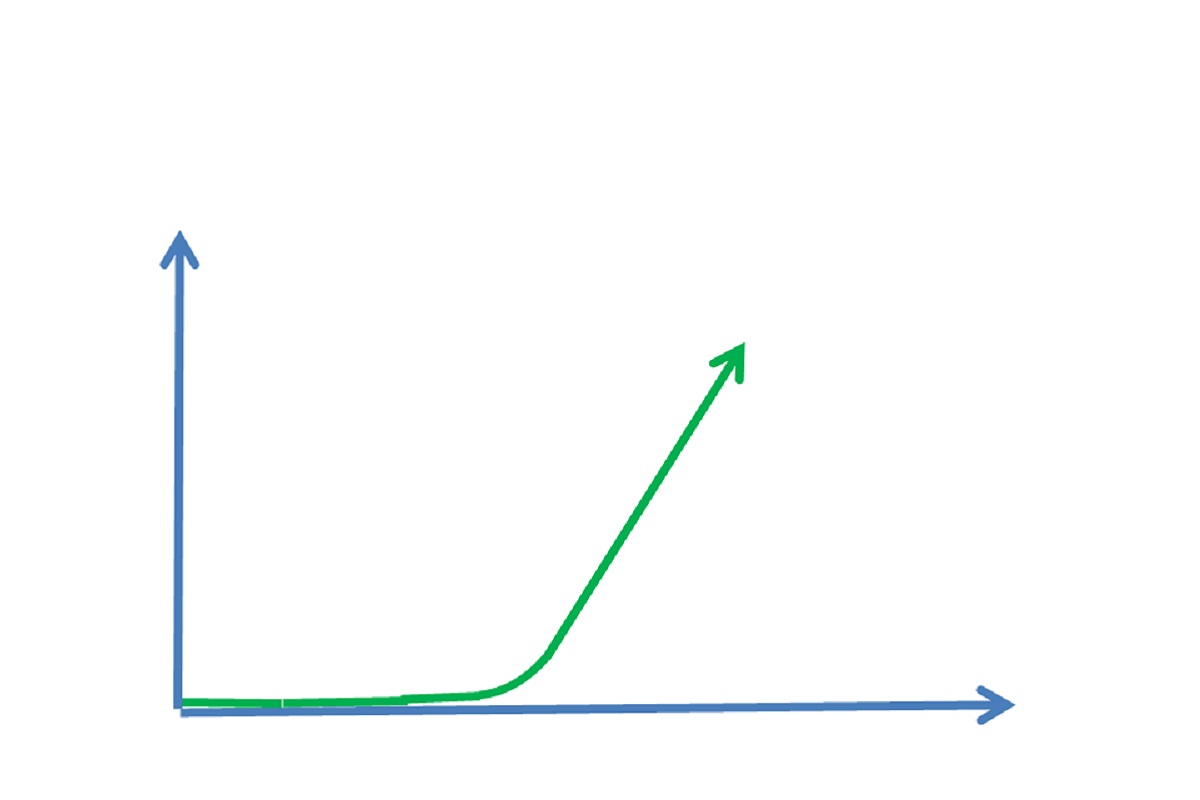
If you are in business, I know one of your priorities is growth. In fact, startup is all about growth. If you are not growing, of course sustainably, then what is the point, right? Paul Graham says growth is what differentiates a startup from other forms of entities.
The challenge, however, is that growing a business is not easy. If it was, everyone would be doing it.
On the top of that, if you are building a B2B business, growth is a doubly difficult job.
Growing a B2B business is strenuous for various reasons. Some of them are common; such as access to the market is harder for B2B business than that of the consumer market, closing a deal takes longer than usual, lengthy decision-making process and so on. That being said, the challenge is what makes entrepreneurship fun and exciting.
Enter LightCastle Partners (LCP). The research and analytics focused startup has been experiencing a consistent growth over the past few years. Started in 2013, LCP has seen its share of challenges and struggles and applied a host of ingenious strategies to grow its business that any startup can apply to their business and grow.
We spoke with Ivdad Ahmed Khan Mojlish to learn more about LCP (you can read the interview here) and its journey and I specifically asked him how LCP has attracted users and grown its business. According to Ivdad, these are a few things you could do to grow your business. These are low-cost strategies but hugely effective.

You are in business means you start with offering a product or a service. In the early days, we are passionate about ideas and maintain a high regard for our ideas and vision. While it is important to be passionate, it is also detrimental when your passion makes you inflexible.
Every business starts with a certain assumption. For instance, you are selling a CRM software. Your assumption is that there is a demand for your product in the market and that your product can effectively solve problems for your customers. But when you go to the market you probably find out a completely different scenario - no one wants your product. This is what they call a lack of product-market fit in the textbook.
You can respond to a lack of product-market fit scenario in a few ways. You can accept the reality and built what customers want or you can deny the reality and doggedly push your product. The results are very different for each of these approaches.
This is a lesson you can learn from the journey of LCP. Team LCP made a very quick decision in the early day to pivot to market research when they found out that customers actually don’t want an analytics solution yet. And that decision made all the difference.
Let’s hear it from LCP Managing Director Ivdad Ahmed Khan Mojlish.
“In our early days, we faced some serious challenges. We started LCP with the vision to educate the local market about the significance of data in the day-to-day to business decisions.
We didn’t think it would be too far-fetched an idea provided that the rest of the world was already experiencing sort of a data-wave at that time. But sadly the market wasn’t ready. Data wasn’t as big a deal as it should be here. So, we had to pivot in order to survive.
While we pitched our data solution, local companies were approaching us with requests for conducting market research. We realized that our core business idea needs a little “fine-tuning” considering the current level of awareness among our target group. Therefore, in order to establish our footing in the market and create credibility among customers, we decided to cater to the existing market need and keep our vision in the background for the time being.”
Things get relatively easier once you have found your product-market fit. This is also where flexibility in your business model and a willingness to explore come in handy. Now that you have a solid business in place, you can expand to your adjacent markets.
I know it is easier said than done. You have to make a deliberate plan, identify opportunities, find synergies, allocate resources before jumping into a new area.
LCP expansion to consultancy and implementation and subsequently to training can be used as a source of inspiration. Here is Ivdad Ahmed Khan Mojlish on how LCP has expanded to its adjacent markets over the years.
“In doing market research, we saw that people were fairly satisfied with our performance and they were making inquiries as to how they could apply the research findings in their business. Simply put, they wanted our consultation. Consequently, we decided to provide consultation service as well which included value chain analysis, business model development, strategic assistance, investment advisory among others.
Our company took on the new positioning in 2014. The business verticals were getting into a firm shape. We began to work closely with various organizations in the public sector and the development sector. Several international players like the Boston Consulting Group (BCG), PricewaterhouseCoopers (PwC), Ricardo Energy and Environment started collaborating with us.
Later on, besides the research and consulting services, our customer started to request us to help them with implementing the strategic decisions. So, that became another product vertical for us. We provide assistance to companies with resource acquisition, capacity building, and efficient training programs and so on. One of the largest implementation projects that we have been doing includes Unnoty, a robust SME accelerator program, supported by USAID Agriculture Value Chain.”
It is impossible to overstate the importance of meaningful connections. When you are building a business and that too a B2B business in nature, a lot depends on your network.
Invest time and effort in building a solid meaningful network. When you have a solid network, it gets easier to access to the market, get appointments and make some sales pitch. It is not that having a mere network would automatically make your successful, rather it is that when you have a good product, having a network gives you the opportunity to reach out to the right people.
Ivdad Ahmed Khan Mojlish on how LCP has used the personal network of its founders to grow its business.
“Before starting LCP, the four of us who founded the company used to work in different organizations in different fields. Some of us worked in the banking sector while others worked in the nonprofit sector.
During our time in those organizations, each of us tried to build up his own network. So, when we came together to build LCP, all of our networks were combined and we got a huge base of potential customers. That’s how we actually acquired our initial customers.
Another thing that helped us grow in the early days was great mentoring. We have been blessed to have great mentors who provide valuable advice on every occasion and guide us through tough times.
Our personal networks and great mentoring gave us the initial traction that the business needed.”
If you are selling to B2B companies, it is likely that expertise is part of what you sell. In the case of LCP, they offer research and data analytics service and expertise is one of the key components to its product.
How do you communicate this idea of “expertise” to your customers? Content could be an effective and low-cost marketing tool to communicate your knowledge and build your thought leadership position in the market.
Here is Ivdad Ahmed Khan Mojlish on how LCP has used content to build a thought leadership position in the market.
“Then we soon realized that since we are in the knowledge space, we have to establish ourselves as a thought leader in the industry in order to attract more customers which eventually led us to invest in content.
We started creating great content, which we continue to do even these days. We began partnering with various organizations and organizing business-related events. For example, we affiliated with the government’s Access to Information (A2I) project to conceptualize, design and co-develop the first ever Open Government Portal of Bangladesh.
We also took it upon us to keep working on important publications such as Business Confidence Index. With such affiliations and endeavors, we wanted to advocate a culture of thought leadership and position ourselves in the market as a source of reliable data and analysis. And if the clients need more, we are happy to help. These small initiatives helped us to get attention in the market and move above the noise in the market. Content continues to be a core marketing and customer acquisition strategy for us.”
-
Starting your own business or have queries or tips to share about startup and entrepreneurship?
You should join Future Startup Community and subscribe to our weekly newsletter. FS Community is an online forum for entrepreneurs and makes to discuss topics related to entrepreneurship and technology, ask questions, share products, learn and connect with other founders. Join, share what you are working on and meet with other peers and help each other to grow.
If you are not building anything yet, no problem. We have great stories, brilliant interviews on and with makers and brilliant minds, just browse.
